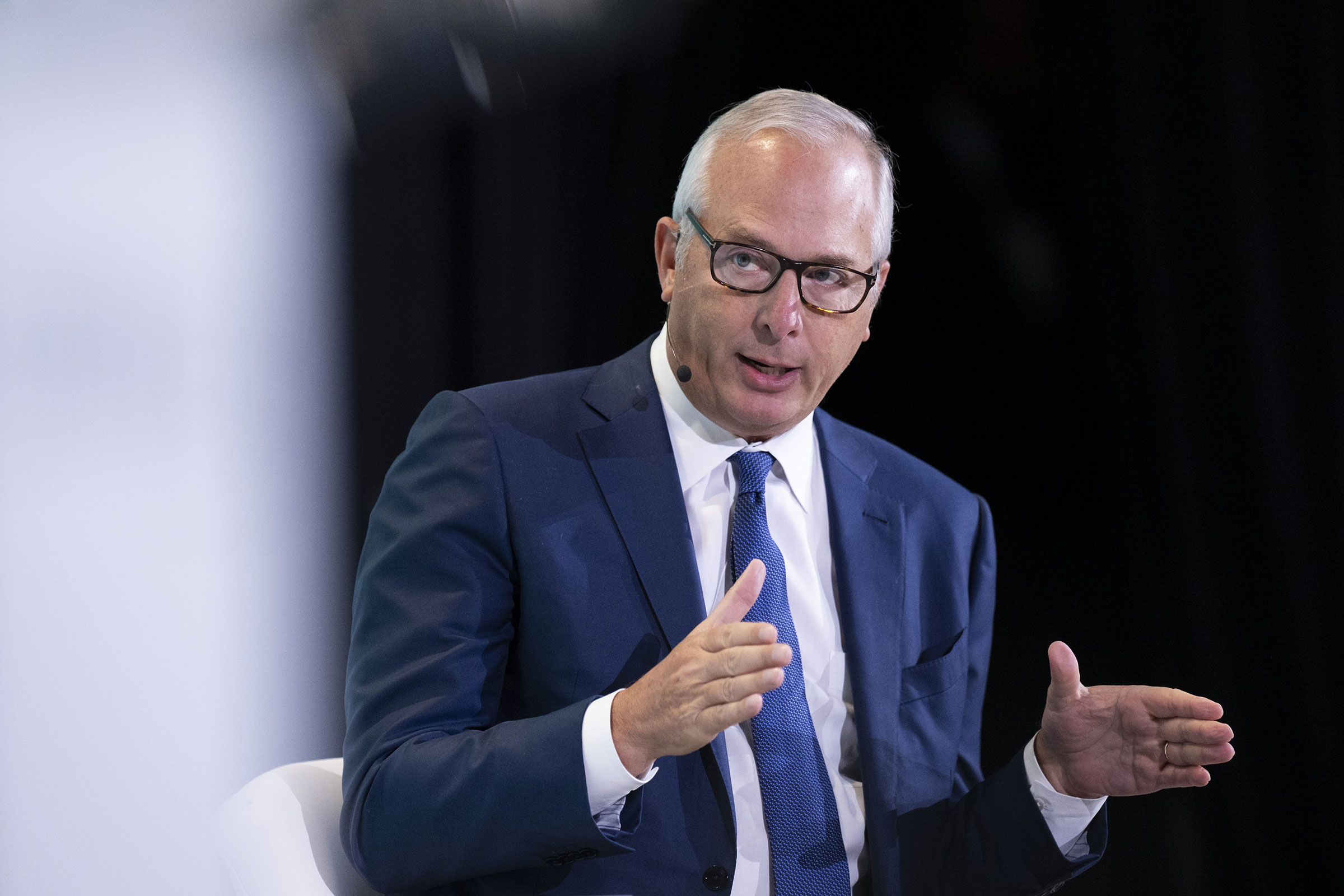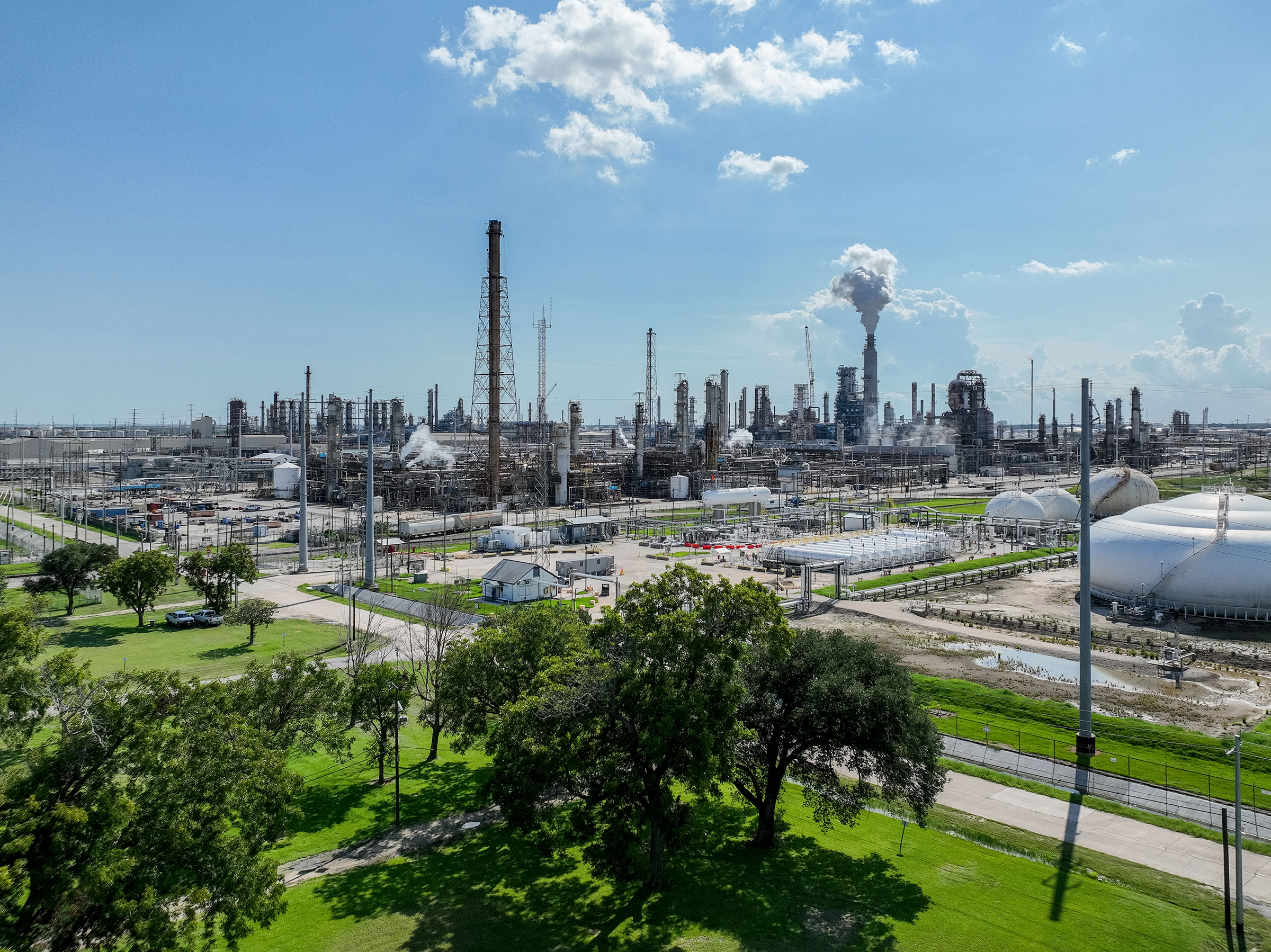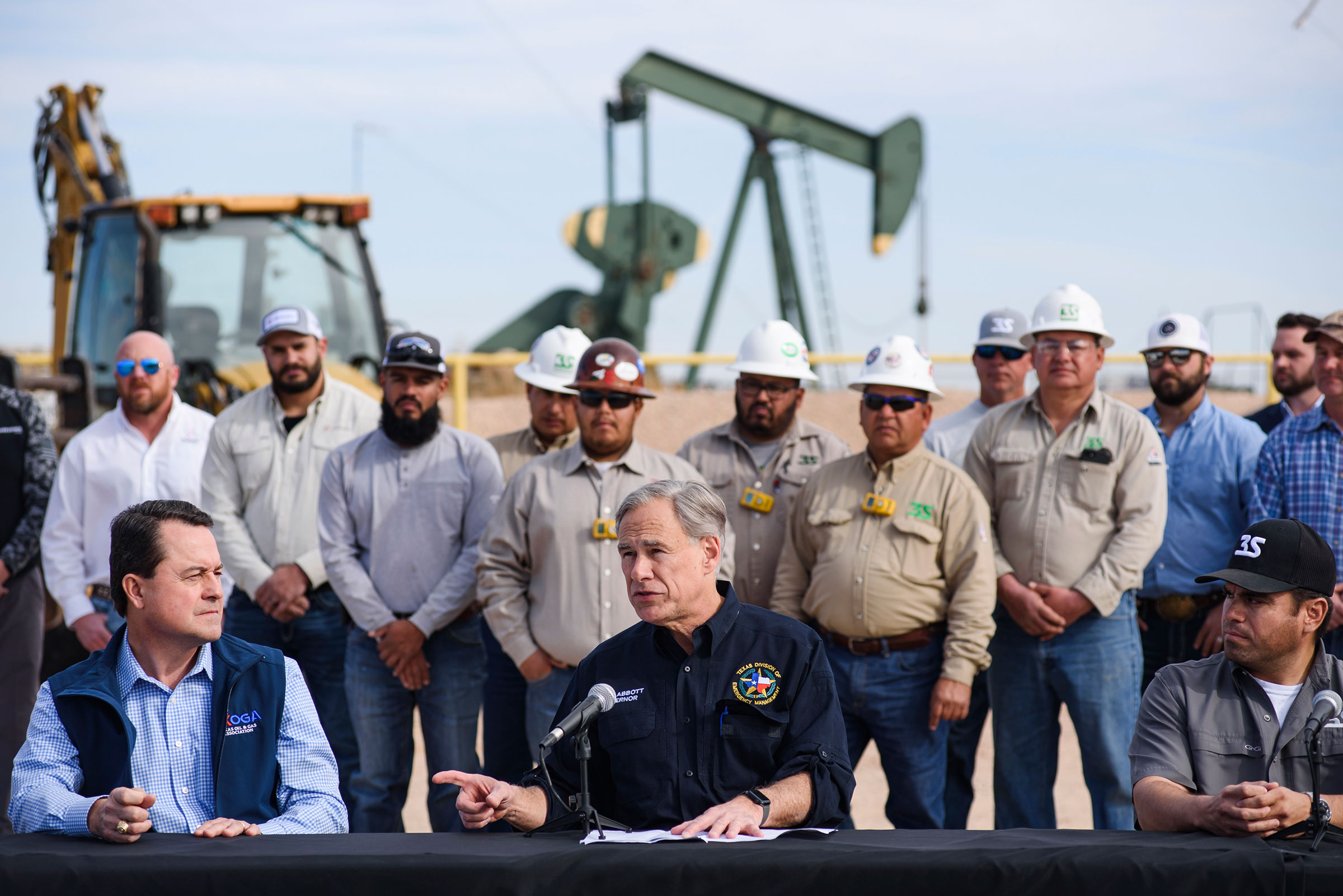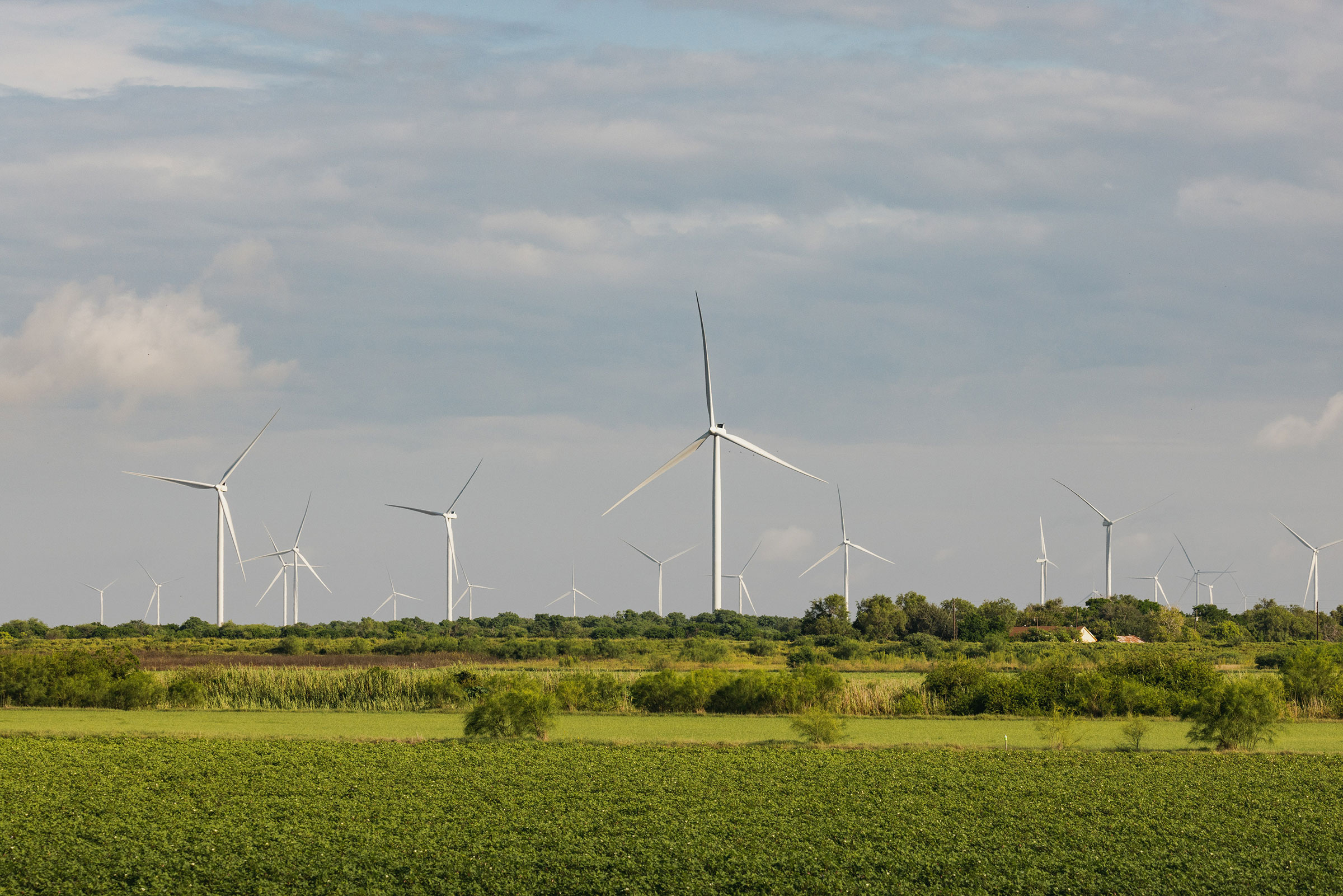Bobby Tudor made a fortune in fracking. The clean-cut financier opened shop in 2007 and spent the next 10 years backing large-scale projects in West Texas, supercharging one of history’s greatest oil and gas expansions. But over lunch in February, even as he predicted that oil and gas would be around for the foreseeable future, Tudor offered a dimmer view of the industry’s role in the region. “Oil and gas is just not going to be the same engine for growth,” he told me. “It will flatten, and then it will decline.”
Which is why Tudor, a consummate Texas fossil-fuel money man, is betting big on green energy.
It’s not hard to see why. The state is already the largest producer of renewable energy in the U.S. Clean-technology startups are flocking to the Houston region, and big energy companies are pursuing hydrogen projects across the state. The city of Houston alone could receive as much as $250 billion in annual investment in the emerging energy sectors by 2040, according to data from McKinsey, thanks in part to its existing infrastructure and skilled labor force. Tudor has started a new firm focused on cutting emissions, and is chairing a powerful business coalition dedicated to the transition and composed of some of the biggest names in energy, including Exxon-Mobil, Chevron, and Shell. “In Houston, when we see $1 laying on the ground,” he said, “we bend over and pick it up.”
There’s just one problem: politics. While many cities, states, and even countries are fighting for the trillions of dollars in public and private green investments that are transforming the energy industry, many Texas leaders, including a powerful segment of the state’s political leadership, are opposing the new opportunities. Some fear that clean energy will hurt the state’s incumbent fossil-fuel business. But many oppose the energy transition as a proxy for opposing Democrats, another way to prove to the conservative base that they are the reddest around. The result is a raft of measures that could hamper green-energy projects and incentivize carbon-heavy ones.

These divisions are setting up a surprising, high-stakes fight. Tudor’s coalition, the Houston Energy Transition Initiative (HETI), is organized by the city’s most prominent business group, and its members are putting serious cash behind new energy efforts. But some politicians are pushing back, launching efforts to slow renewable energy and publicly vilifying environment initiatives. “[Major oil and gas firms] may have supported us in the past, but they certainly don’t align with us now,” says Jason Isaac of the conservative Texas Public Policy Foundation. “They’re going to go and chase money—and it’s unfortunate.”
More from TIME
Read More: Lone Star ‘Wake Up Call’: Texas Republicans Want to Ban ESG in Insurance
The fight in Texas can tell us a lot about the bigger push to address climate change. A well-executed transition would help cut global emissions, create wealth and opportunity for millions of Texans, and set an example for the world. But the unfolding debate also shows why it’s not so simple. Politics and culture are powerful forces everywhere, and despite mounds of evidence about the value of transition, it’s unclear whether long-term economic considerations will win out. We all have an interest in the outcome. “We need to do it for commercial reasons,” says Tudor, but “we have a responsibility to do it too. The challenges of climate change, and the energy transition broadly, are so enormous that they’re not going to be solved without us.”
On the news and in popular culture, Texas can seem like a MAGA fever dream as politicians race to pass antiabortion laws and grandstand about critical race theory. But the business community driving the state’s economy gives a different impression. Chatting at a sleek Italian restaurant in Houston’s eclectic Montrose neighborhood, Tudor sounds more patrician than partisan. We talk about oil prices, yes, but also about Houston’s diversity and civic life, and the divergence between energy-industry financial returns and the region’s economic development. It’s an old-school vision of companies as pillars of the community that Tudor and many of his fellow executives share, one where business and government are partners in the greater good.

It’s a reading rooted in history. Before the 20th century, Texas was a largely rural, agrarian state; the discovery of vast oil reserves in 1901 changed that almost overnight. Within a matter of years, the oil industry expanded rapidly and so did the state’s urban centers. Whether by necessity or ideology, the government has largely stayed out of the way of the private companies that drove rapid growth and economic prosperity.
That has left Texas well positioned to capitalize on the energy transition. Building big infrastructure projects in Texas is easy thanks to a light regulatory environment. Much of the existing infrastructure—think pipelines—can be converted to carry carbon dioxide or hydrogen. The state has the highest concentration of chemical engineers in the country, jobs well suited not just for oil and gas but also for new energy technologies. And the local higher-education system, funded in large part by industry, has top programs to continue churning out energy workers.
But it’s hard for a transition to catch on when there’s so much money to be made in petroleum. At times over the course of the past 50 years, oil and gas has constituted 15% of the state’s economic output, according to data from the Federal Reserve Bank of Dallas, and the state’s broader economy in turn oriented toward fossil fuels as well. The industry’s prospects have whipsawed lately. The sector already had been under-performing the rest of the stock market in the years before COVID-19 hit. As energy demand tanked worldwide amid the lockdown, the price of oil briefly went negative, sending shock waves throughout the industry.

This unprecedented upheaval coincided with the beginning of Tudor’s campaign to get the industry to embrace the transition. An energy price spike driven by the Russian invasion of Ukraine and COVID-19 reopenings has led to dramatic profits for the industry and softened the short-term financial urgency of embracing the transition.
But the immense volume of capital flowing into clean energy, especially as a result of the Inflation Reduction Act (IRA), has sparked newfound resolve in the local business community to go green. “The IRA was a turning point,” says Greg Matlock, who leads EY’s Americas Energy Transition practice. “We were on the phone with clients, and within a week you could see tangible movement on transactions. It was quick and it was palpable.”
Read More: How The Inflation Reduction Act Will Spur a New Climate Tech Ecosystem
In Houston, it’s easy to see this on the ground. The downtown skyscrapers are full of incumbent oil companies, but a couple of miles away, in what city officials are calling the Innovation District, a new energy ecosystem is taking shape. I visited the office of Ara Partners, a private-equity shop with a self-proclaimed “industrial decarbonization strategy” that sees profits in helping companies cut their carbon footprint.
“Houston was the right place because the world of made things is made here,” says Troy Thacker, the firm’s CEO. Across the street, I visited Greentown Labs, an incubator where dozens of startups are working on everything from installing wind turbines more efficiently to turning cow manure into an alternative fuel source. Houston startups alone received $1.95 billion in venture-capital money in 2022, with energy-related startups raising almost as much as the next three sectors combined, according to data from the Greater Houston Partnership.

Across the state, investments from new and incumbent players aim to make Texas a world leader in green hydrogen, a clean way to store renewable energy. In Matagorda County, south of Houston, a company known as Highly Innovative Fuels, funded in part by old-school energy players like Baker Hughes, is building a massive facility that will use renewable electricity, green hydrogen, and technology that captures carbon dioxide. A venture-capital-backed energy company named Humble Midstream is building a hydrogen-export facility. McKinsey estimates the hydrogen economy alone could be worth $100 billion to the state’s economy.
In Austin, I watched Jane Stricker, the executive director of HETI, present a vision of Texas as a capital of the energy transition to a gathering of lobbyists, regulators, and legislators. Her pitch: policy-makers should join with business leaders to speed the shift. “We can solidify our position if we really lean into our role,” said Stricker, a former BP executive. “We have the opportunity to create massive economic growth.”
But for all of Texas’ business-friendly swagger, not everyone views a public-private green collaboration as a good thing. Responding to Stricker at the energy gathering, a Texas energy-industry insider questioned whether the state’s businesses were actually on board, then challenged the entire premise. “Can you articulate: transition from what to what?” he asked. In the discussions that followed, academics, elected officials, and business leaders laid out a range of positions. A renewable-energy lobbyist decried GOP attempts to stomp out his industry. A state regulator laughed off a question about using funds from President Biden’s infrastructure law.
Read More: How Republicans Learned to Stop Worrying and Love Green Jobs
Business leaders try to play down the political opposition they face, arguing that ultimately lawmakers won’t turn down easy money. But while there are mixed opinions in Texas’ GOP, today opposition to clean energy and climate policy is defying the state’s business-friendly reputation and threatening to slow the transition in Texas.

Nowhere is that opposition clearer than in state government offices in Austin. The state legislature is crafting policies to stymie renewable energy. One bill would create new permitting requirements just for renewable-energy projects, requiring plant developers to evaluate the impacts on wildlife. Fossil-fuel power plants would be exempt. Other measures would provide those plants new state subsidies. “There definitely is a contingent that’s looking to push up natural gas by pulling renewables down,” says Daniel Cohan, an associate professor of civil and environmental engineering at Rice University.
And then there’s the anti-ESG rhetoric, a new front in the culture wars. Texas has banned a group of financial firms from doing business with state and local governments for using environmental, social, and governance metrics. These moves send a signal that green businesses aren’t welcome. “It could go faster if the state political forces were less antagonistic,” says Kay McCall, president of the Renewable Energy Alliance Houston. “When you look at it, it’s almost silly.”
As a fly on the wall in startup conference rooms in Houston and Austin, I got a sense of the mood: outraged, but optimistic that economics will prevail over politics. Texas will realize some of its potential because of the direction of the market and the allure of tax incentives. The state’s pro-business roots, skilled workforce, and abundant natural resources have set it up to do big things in the energy transition.
But the outcome is not preordained. State politicians seem determined to limit green opportunities that big energy companies are eager to pursue. Even if they can overcome the political hurdles, activists worry that a business-led approach to the energy transition may not be the best for the world, as companies don’t want to give up profits to be made in oil and gas. Which means Texas may end up less green, and less prosperous, than it could be.
More Must-Reads from TIME
- How Donald Trump Won
- The Best Inventions of 2024
- Why Sleep Is the Key to Living Longer
- Robert Zemeckis Just Wants to Move You
- How to Break 8 Toxic Communication Habits
- Nicola Coughlan Bet on Herself—And Won
- Why Vinegar Is So Good for You
- Meet TIME's Newest Class of Next Generation Leaders
Write to Justin Worland/Houston at justin.worland@time.com
